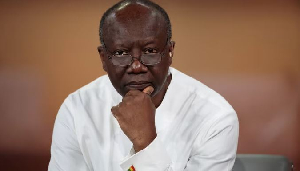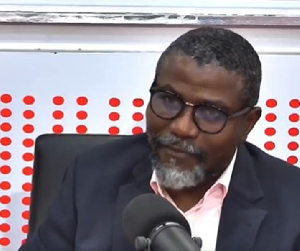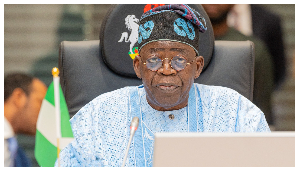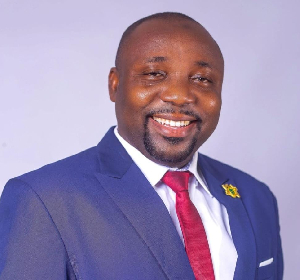By Otchere Darko
Reference: “Berlin Conference [is] responsible for Africa's problems - Prof Williams” [Ghanaweb General News of Thursday, 5 December 2013; Source: myjoyonline.com]
While appreciating the spirit of Africanism within Ghanaian-based American Professor Michael Williams.... a spirit that energises Africans who have it to speak for, and defend Africa wherever and whenever this continent is being discussed or debated on, I do not fully agree with him for [allegedly] saying that the “Berlin Conference [is] responsible for Africa's problems”.
Yes, it is true that the Berlin Conference led to the partitioning of Africa. While accepting this as a good starting point for any analysis of Africa’s problems, one may question the unqualified correctness of Professor Williams assertion by asking three related questions, which are:-
(a) What were the African leaders who ruled the various pre-colonial communities of Africa in those days doing? Most were fighting among themselves and weakening one another.
(b) During the period that colonisation of Africa took place, did African leaders not ‘sell’ their communities to the Whiteman for material benefits and a presumed ‘sense of security’ which the Whiteman promised our leaders in exchange for the right to rule them? Yes, they sold their rights to rule their communities in exchange for various ‘considerations’.
(c) Apart from a few cases of ‘forced colonisation’ in situations where Europeans annexed or colonised African communities or kingdoms through ‘wars of conquest’, did African leaders of those days not voluntarily sign treaties [of “friendship”] with European powers before these often-called “European imperialists” colonised and subordinated our pre-colonial communities and kingdoms? Ghana’s “Bond of 1844” testifies the fact that that we (Africans) did not unite to oppose the partitioning and colonisation of Africa. Instead, in several communities, we united to ‘surrender’ our birth rights to the so-called “colonialists..
Yes, it could be argued [and I mean {just} ‘argued’] that Europeans are blameable for [some] problems that have for several years in the past saddled, and continue today to saddle the continent of Africa. Nonetheless, it must be mentioned, and with honesty, that this statement is only partially correct. *The time is long overdue for Africans to own up to the contributory roles we (Africans) of yesterday and of today played and continue to play in creating and sustaining “colonisation” in Africa, in both the old and new senses of the practice. In particular, we (Africans of today) must not lose sight of new problems that have been added to those we inherited from our colonial past.... new problems that own their direct origins to the extreme ‘wickedness’ of our post-Independence political leaders, in particular. and the remaining top echelon of our administrative elite generally. The extreme political and material greed of our political leaders, coupled with their deficient political and administrative acumen, has created and accentuated the draconian post-independence problems that currently face, and threaten to bury the continent of Africa.
During pre-independence years, our parents pounded the main component of our commonest afternoon or evening meal (fufu) with wooden pestle and mortar. Today, our parents continue to pound fufu with the same set of tools. We continue to do this, not only in our homes, but also at public “chop bars” in Accra and elsewhere in the country, one sees commercial ‘fufu pounders’, soaked in thick beads of dripping sweat, pounding fufu, with women sitting on kitchen stools and turning the softening cassava or plantain dough with their raw figures. During pre-independence time, farmers also used cutlasses and hoes in their days. Today, farmers in rural Ghana, who constitute about 90% of the farming population in the country, continue to use cutlasses and hoes to till patches of farmlands, just as farmers in pre-independence Ghana and those in medieval old Ghana Empire days used to do. We (Africans) never find ways to improve the way we do things in and around our homes. So, why won’t problems engulf and swallow our continent?
Before self-government in Ghana, we had only one university (University of Ghana). Today, I cannot count the number of public and private universities we have in the country; and, yet, the government that cannot find jobs for the graduates we already produce is building and promising more universities. Sadly too, these numerous universities are incapable of solving their own internal problems, let alone help the nation solve its mounting national problems. By rough guessing, I may say over fifty percent of the Members of Parliament and the Executive in Ghana, including almost all our Presidents, travel outside Ghana to receive medical attention when they are not well. These MPs and top politicians in government, through the “health-tourism” they regularly engage in, notice how neat and efficient the Whiteman’s hospitals and other health facilities are. Despite this, the Ghanaian politician cum “health-tourists” returns home to Ghana to literally ‘oversee’ Ghana’s mice and bacteria infested dirty hospitals; and he does nothing to improve them. I recently visited a patient relative of mine on admission at Korle Bu Teaching Hospital and I nearly wept. Korle-Bu Teaching Hospital, the biggest hospital in Ghana, was a complete eyesore, to say the least. If gold in your house rusts, in what condition can we expect to find base metal iron in the same house?
Inward-looking, as a behavioural trait, is not wrong or bad, as long as the one who is being seen as “inward-looking” looks inwardly so as to examine and know himself, with the aim of knowing what is bad about him and correcting what he finds bad about himself. If we (Africans) looked back in history to know what we did wrongly in the past, that required us to learn to do correctly now and in the future, then the habit or practice of ‘looking backwards’ would be worth continuing. *We (Africans), however, look backwards into our past only to find ‘excuses’ for our inexcusable failures.
Assuming that the Berlin Conference was responsible for Africa's problems, including the presumption that it “created small units of hostility” and greatly impacted our mind through the creation in us of “a very low sense of self-esteem”, it is very important that during public debates and discussions, we (Africans of today) stop ‘looking backwards’ into our colonial past, and engaging in expression of sentiments that are capable of instigating Africans to nurse hatred against any particular group of foreigners, on account of what their forebears did or did not do, because such ‘backward-looking’ and discussions cannot positively help us to solve Africa’s problems. In our current globally interrelated world, Africans alone cannot solve African problems. Africans, in particular, need and will continue to need the support of the rest of the world, including those we constantly accuse of causing our problems and failures.
*Soon after his release from prison, Africa’s iconic Statesman, Mr Nelson Mandela, whose passing yesterday is, as I write this article, being mourned, told his ANC members and other Black South Africans to “let by-gones be by-gones”. *I do believe that Mr Mandela’s wise post-prison message to the ANC and his rainbow country has resonance in the rest of Africa and other Black communities in the world at large. *WE (TODAY’S AFRICANS) WHO ARE DESCENDANTS OF PAST VICTIMS OF PARTITIONING, COLONISATION, TRANS-ATLANTIC SLAVE TRADE AND OTHER INHUMANE TREATMENTS, MUST LEARN TO LET BYGONES BE BYGONES.
Opinions of Sunday, 8 December 2013
Columnist: Darko, Otchere














